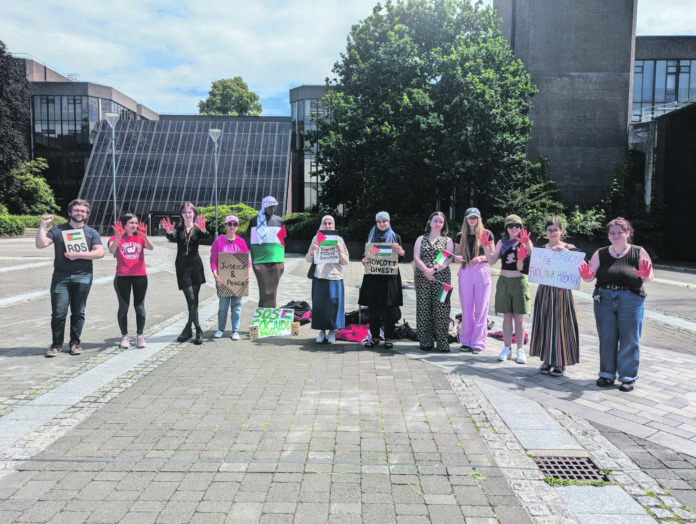
TIMES of political turmoil and global challenge can also be times for publicly taking a stance.
To find out what keeps them going when times seem toughest, this reporter spoke to three Limerick-based activists to delve into what motivates them.
“It’s not like I even thought about caring,” says Alice Abreu, a Portuguese violinist in Limerick who uses her social media platform for advocating for national and international issues.
“It was more a thing of connecting with my inner self and realising that I do care.”
For University of Limerick psychology student Molly McNamara, it was a revelation of her own privilege.
“I get to go home every day and not worry about my house getting bombed or losing every single person in my family,” she said.
Speaking to this reporter, Molly shed a tear as she spoke about a doctor in Palestine who she has formed a friendship with.
“He doesn’t get the privilege that I have of turning off my phone and now the problem doesn’t exist anymore.”
Molly is a member of a committee that manages the grassroots Boycott, Divestment, and Sanctions (BDS) movement within the UL community, condemning the university’s links with Israeli companies.
“When you’re interested in social relations and international relationships and politics it’s kind of hard to not see systems and patterns of oppression,” she says.
She considers that as a “privileged person”, she has the right to protest for people that cannot do so.
Ben Desjarlais, a UL graduate and US native who works alongside Molly in the BDS committee, also feels his desire to work for the people who are not able to do all the things he can is a major motivating factor.
“When there’s wars, when there’s violence, when there’s genocide, I feel like where I have the capacity, I have the duty to do something,” he says.
“If I think about ‘why do I care?’ I care because I can’t imagine not caring”.
But how do they deal with the uncertainty of knowing if their actions will make any difference?
Molly and Ben say the argument that activism does not do anything is used to tumble its legitimacy, especially by “those who benefit from activists not protesting”.
Molly recalls following a week of student protests, Trinity College Dublin decided to cut all of its ties with Israel.
Speaking of her Palestinian doctor friend, she says that just “showing up to (a) protest made that man’s whole day”.
She admits, however, that weighing head-first into a cause can be exhausting.
“Burning yourself out over something isn’t going to make you better at it,” she says, suggesting a measured approach.
“You need to give yourself time and space to be able to do the things that you need to do, or you’re never going to be able to do them right”.
For Alice Abreu, taking care of oneself means taking care of others. She identifies her activism with love.
“It’s everything about others, about the Earth, about myself, and then realising that everything is so connected in a way that there’s no way I can care for myself and not care for others,” she says.
This story is part of the Tell Your Own Story (TYOS) project. Published monthly, in collaboration with the Limerick Post, TYOS shares the stories of Limerick people of all backgrounds and abilities in the hopes of encouraging unity in diversity. For more information, visit tyos.ie.


